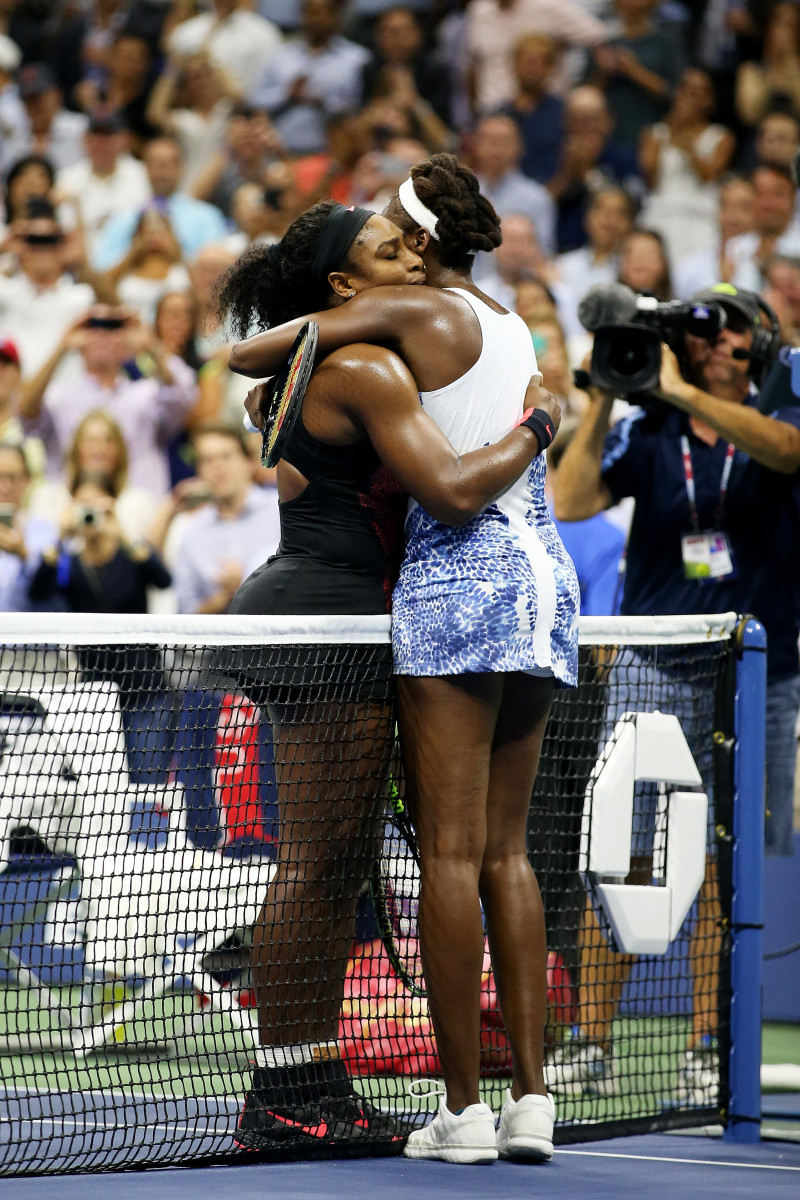The quest continues: Serena beats Venus to keep Grand Slam hopes alive
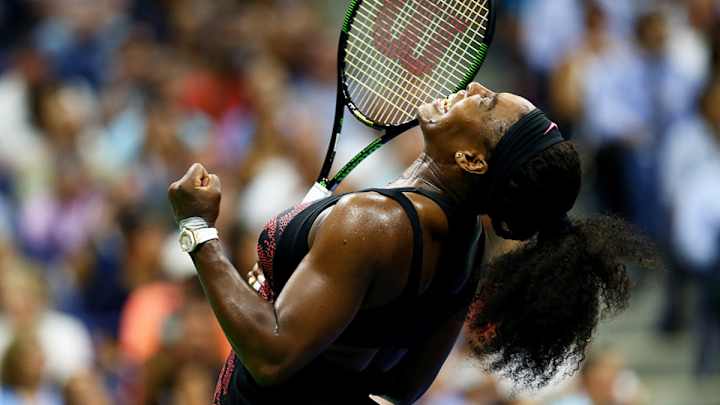
NEW YORK –Quick thoughts on Serena Williams’ defeat of Venus Williams 6–2, 1–6, 6–3 on Tuesday night in the U.S. Open quarterfinals.
“This is our first Grand Slam final together, and, really, that’s the way we’d like it to be. Because then both of us win in a way. [But] I just hate to see Serena lose anyway, even against me.” — Venus Williams, following 2001 U.S. Open final.
“She said she didn’t feel like she really won because she always wanted to you, you know, kind of protect me. I told her, ‘Well, you won. Take it. You know, it’s your win. It’s your victory.'” — Serena Williams, following 2001 U.S. Open final.
Recapping Serena Williams' last four Grand Slam titles
• This was Williams Bowl XXVII. (When you get Roman numerals, you know it’s a longstanding sporting event.) The first time Venus and Serena played each other, it was a milestone and an occasion to applaud an unlikely intra-family feat. But it was a fraught affair, played before a crowd entirely unsure how to behave. Is it weird to cheer for one sister at the expense of the other? And Venus and Serena gave few cues, clearly—and totally understandably—uncomfortable with it all, showing little of the fist-pumping intensity they brought to other matches. Almost twenty years later, that hasn’t changed much. Tonight marked an appreciation of the Williams sisters and, by extension, one of the more remarkable stories in sports. The celebrity guest list included Oprah, Nas, assorted Kardashians and Jenners. But it couldn't overcome the discomfort, the absence of friction that you seldom see at a sporting event.
• As for the X’s and O’s, Serena generally played still more top-shelf tennis, now up to five straight sets here. She served well (brilliantly at times), showed some nifty playing patterns and, as expected, attacked Venus’ weakness—her dodgy second serve. In the fifth game of the match, Serena broke Venus and ran away with the set, slugging 15 winners versus just a pair of unforced errors. This marked Serena’s fourth straight set of peerless tennis.
Roberta Vinci, Marin Cilic are first to advance to U.S. Open semifinals
And then, abruptly, it all stopped. Serena suddenly couldn’t find the court and Venus played as fine a set as we’ve seen her play. She established her serve—winning 19 of 24 points. She penetrated the court, and broke her sister twice, reading her serve and firing away. (As it has been written since 1998: no one reads Serena Williams’ serve better than Venus Williams.)
Then, as abruptly as Serena lost her touch, she regained it in the third. She broke Venus early to go up 3-0. Despite some nervy points—especially mid rally backhand errors—Serena served out a high quality, if weird, match.
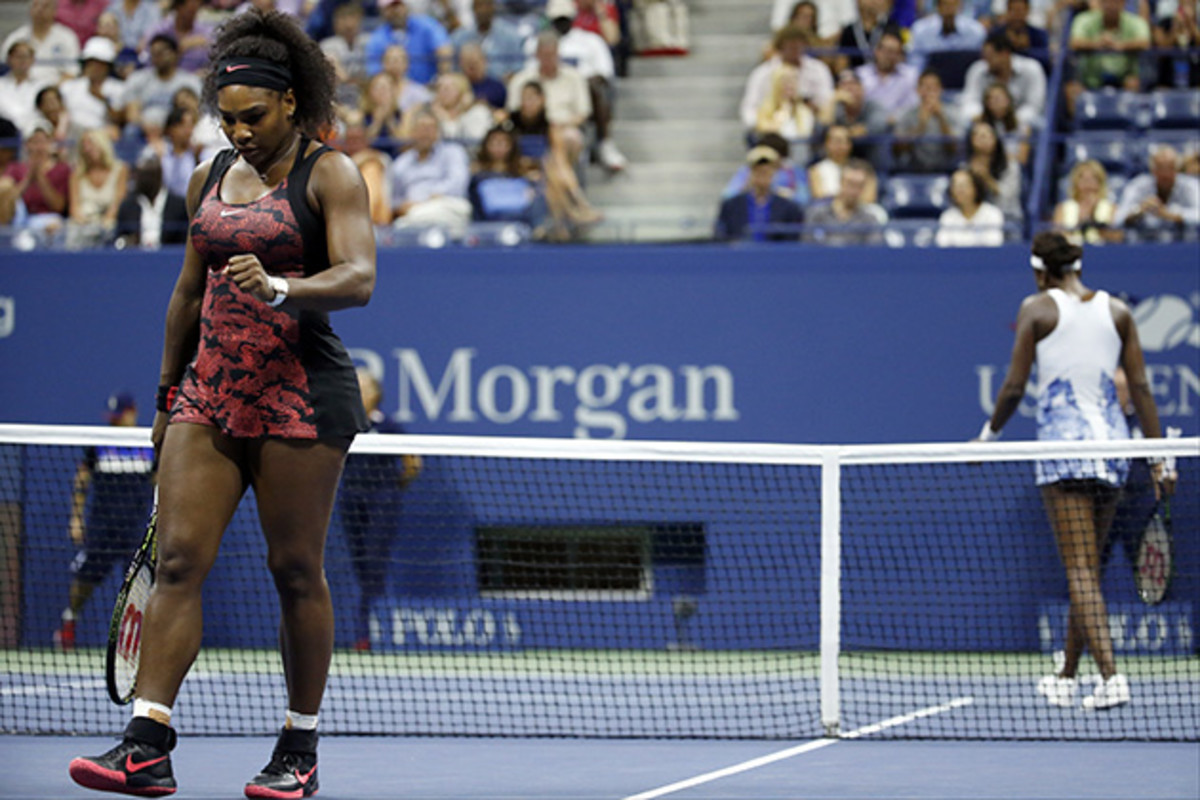
• Venus Williams could not win. Technically and conceivably, she could have. She could have played first strike tennis and tried to hit winners before her opponent did. She could have served the match of her life. She could have made more of a dent in Serena’s service games in the first and third sets. But, really, it was hard to imagine Venus being the one to thwart her sister’s charge at history. She played gamely. At age 35, she is still an elite player. In the absence of Serena she would have been a contender. But this? The family psychodynamics wouldn't allow it.
History of the Serena vs. Venus Williams rivalry at the U.S. Open
• How fitting would it have been, had Serena and Venus been on opposite sides of the draw, and played each other in the final—enabling Serena to consecrate her Grand Slam against her sister? But the tennis draw gods don't operate that way. Sadly, the players who have combined to win almost half the Majors played over the last 15 years, met in the quarterfinals.
Having overcome her sister—and all that goes with it—Serena can now focus on winning two more matches, which, we know with certitude, won't be this awkward. Happy to have this behind her Serena moves on. Roberta Vinci is the next opponent. The finals are Saturday. Then, one would think, anyway, it’s on to history.
SNAPSHOTS FROM DAY 9
U.S. Open 2015 Day 9
Kristina Mladenovic
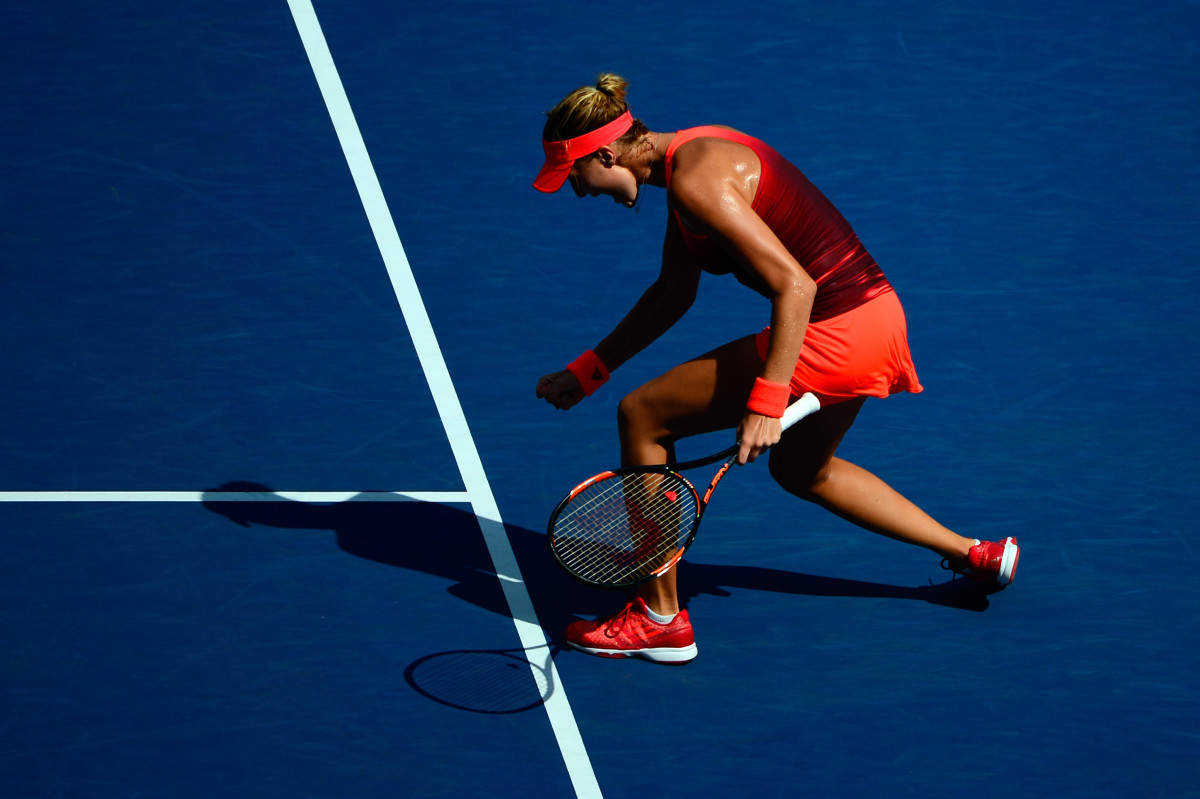
Roberta Vinci
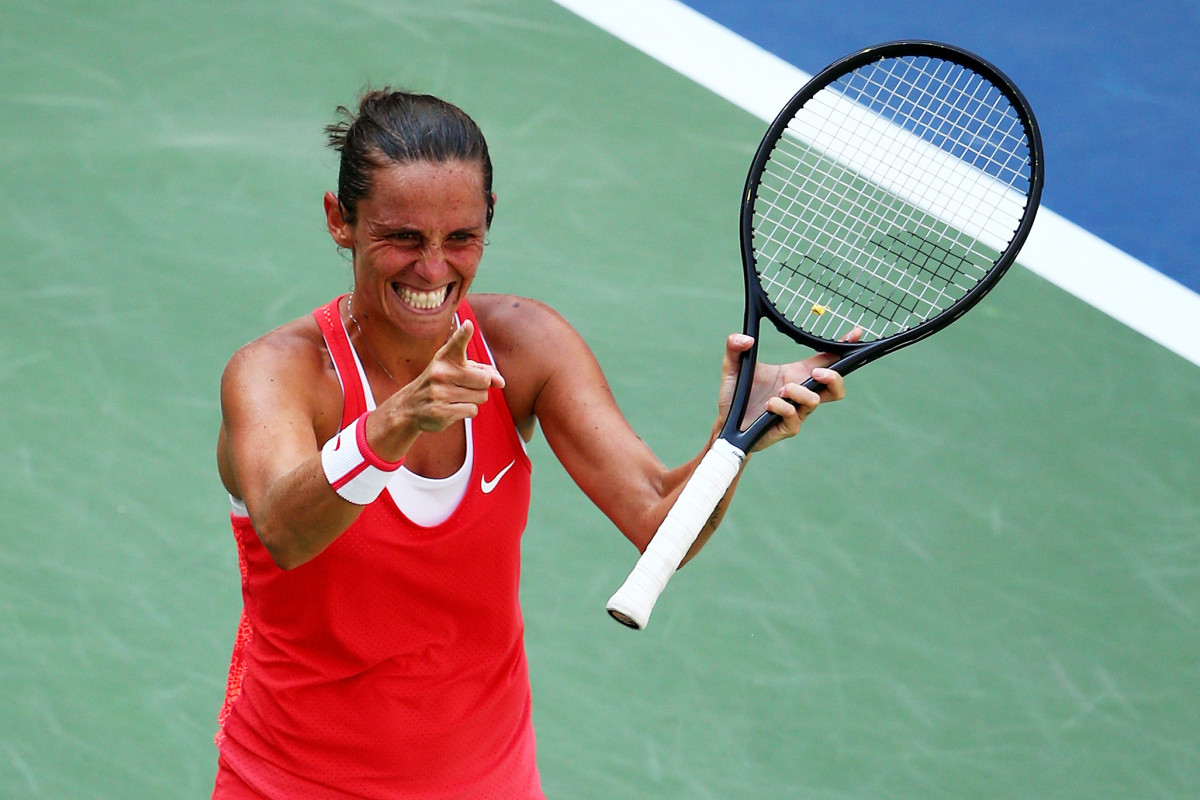
Roberta Vinci
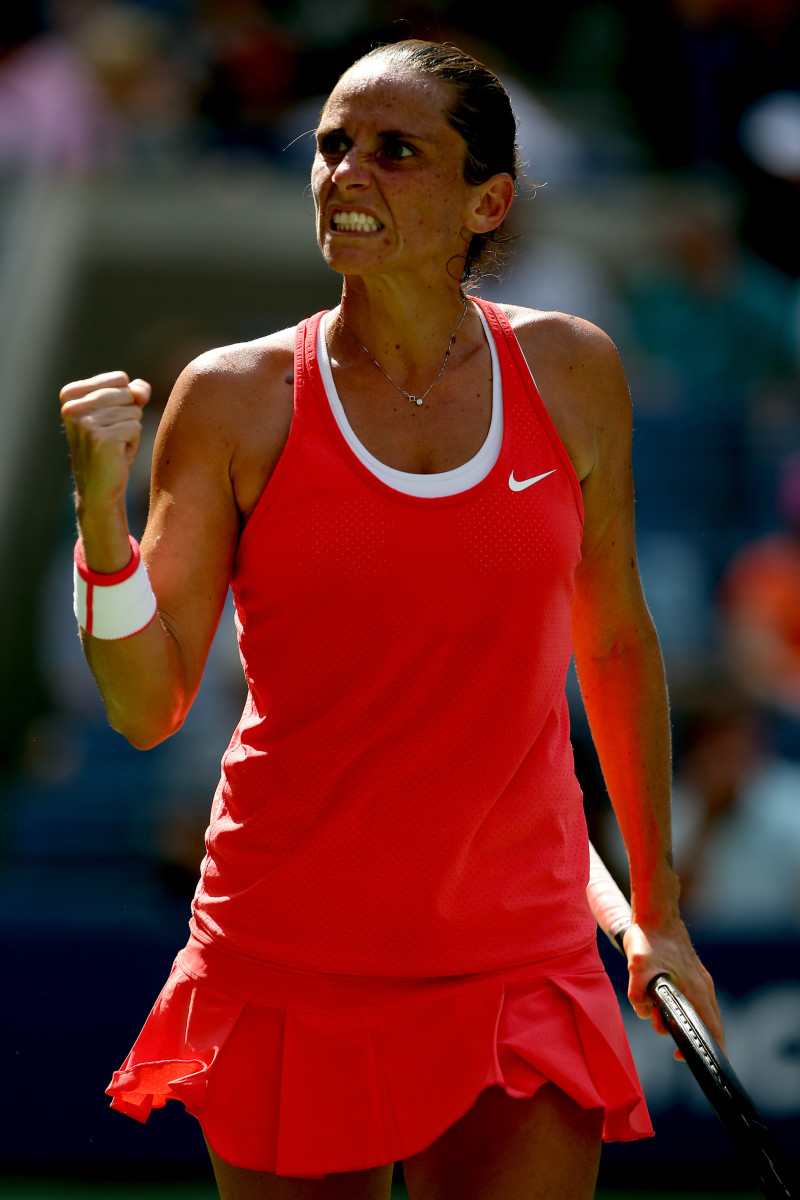
Kristina Mladenovic
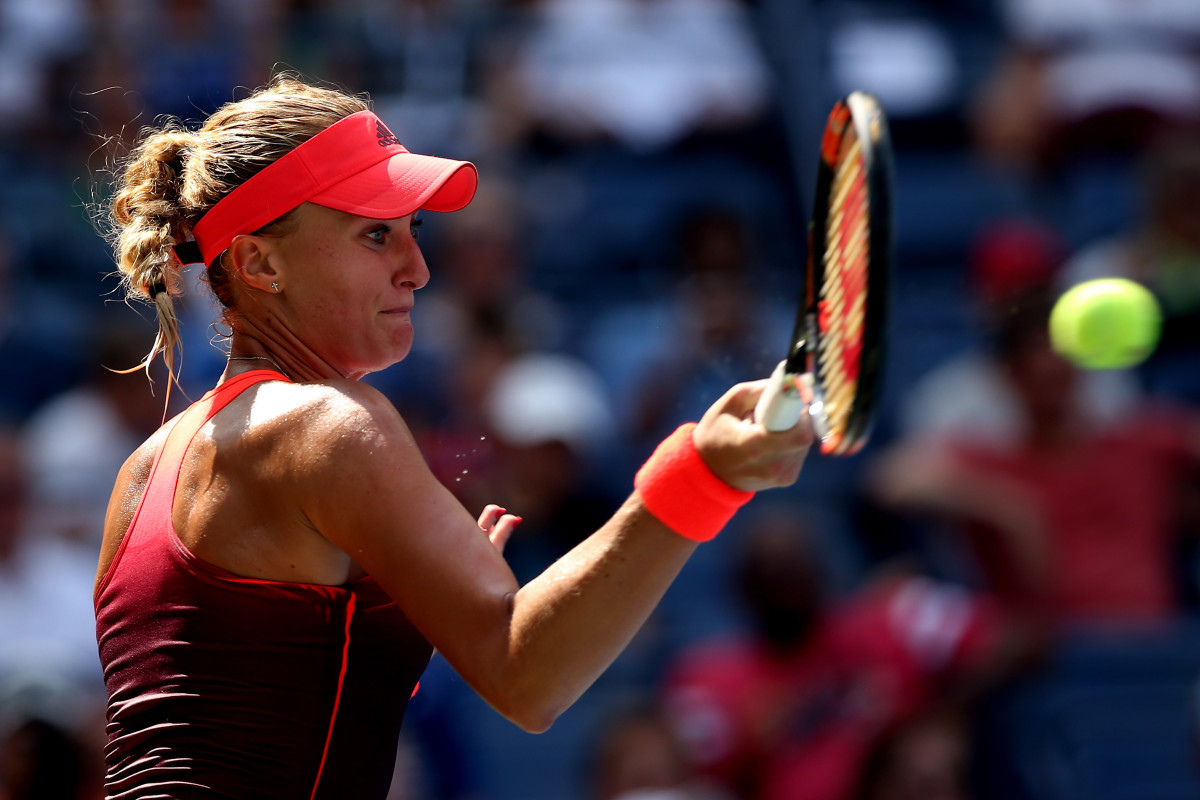
Roberta Vinci

Marin Cilic
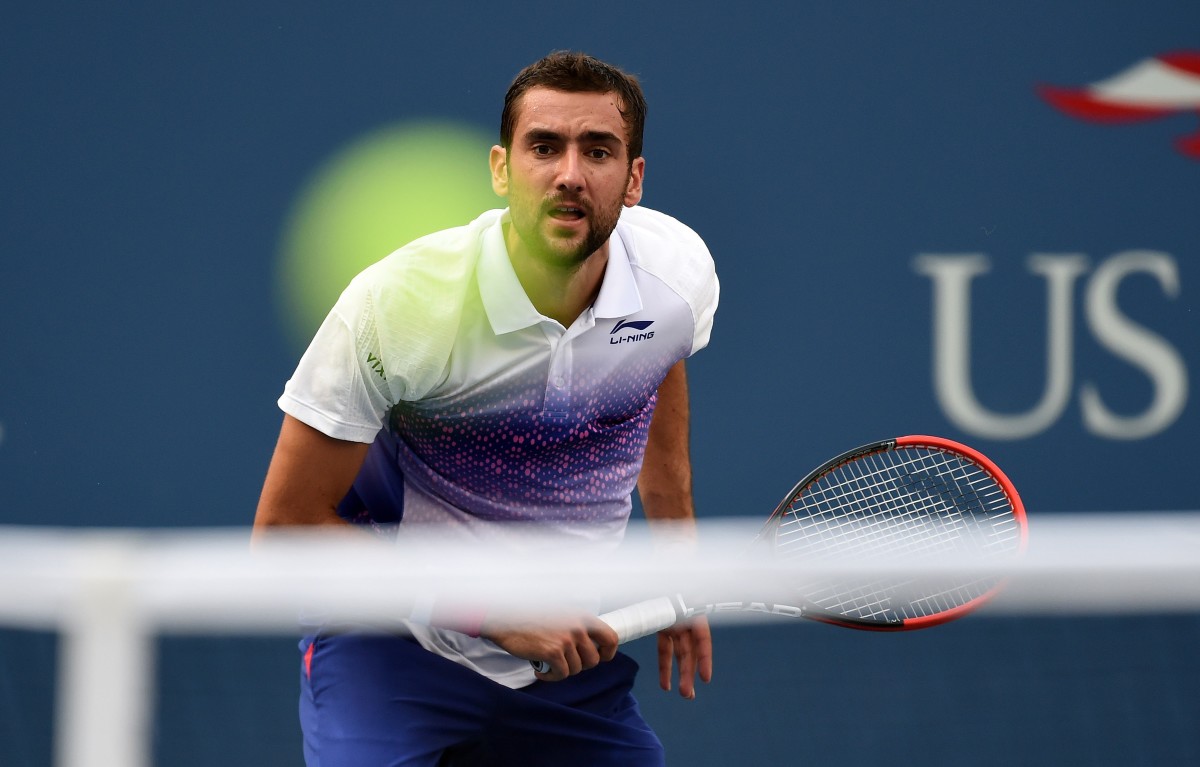
Marin Cilic
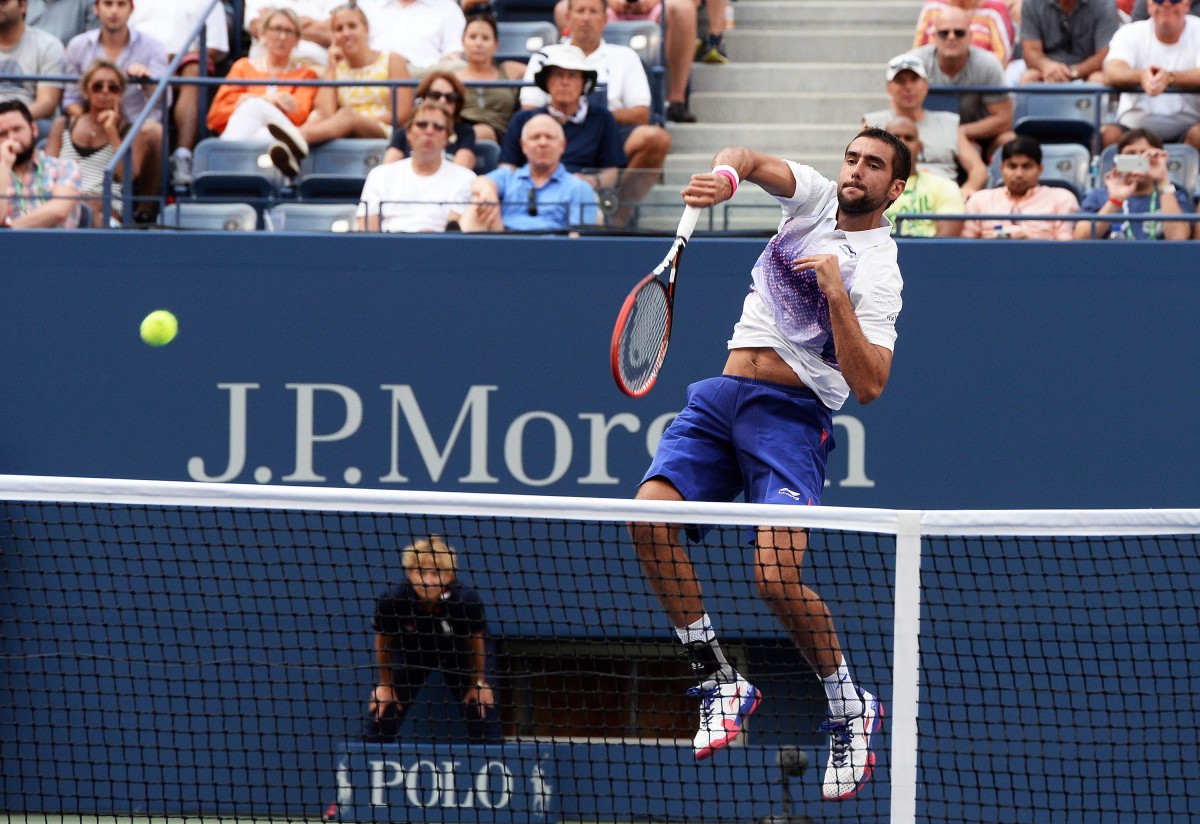
Jo-Wilfried Tsonga

Marin Cilic
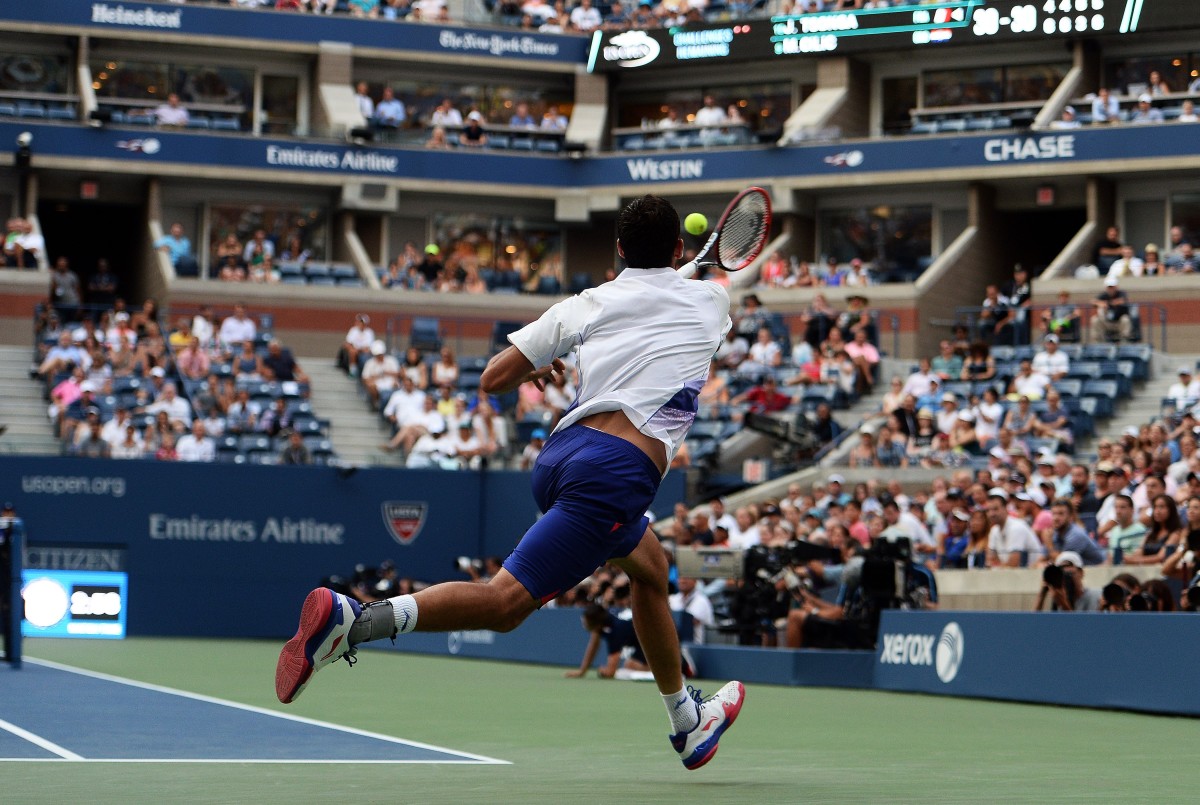
Jo-Wilfried Tsonga
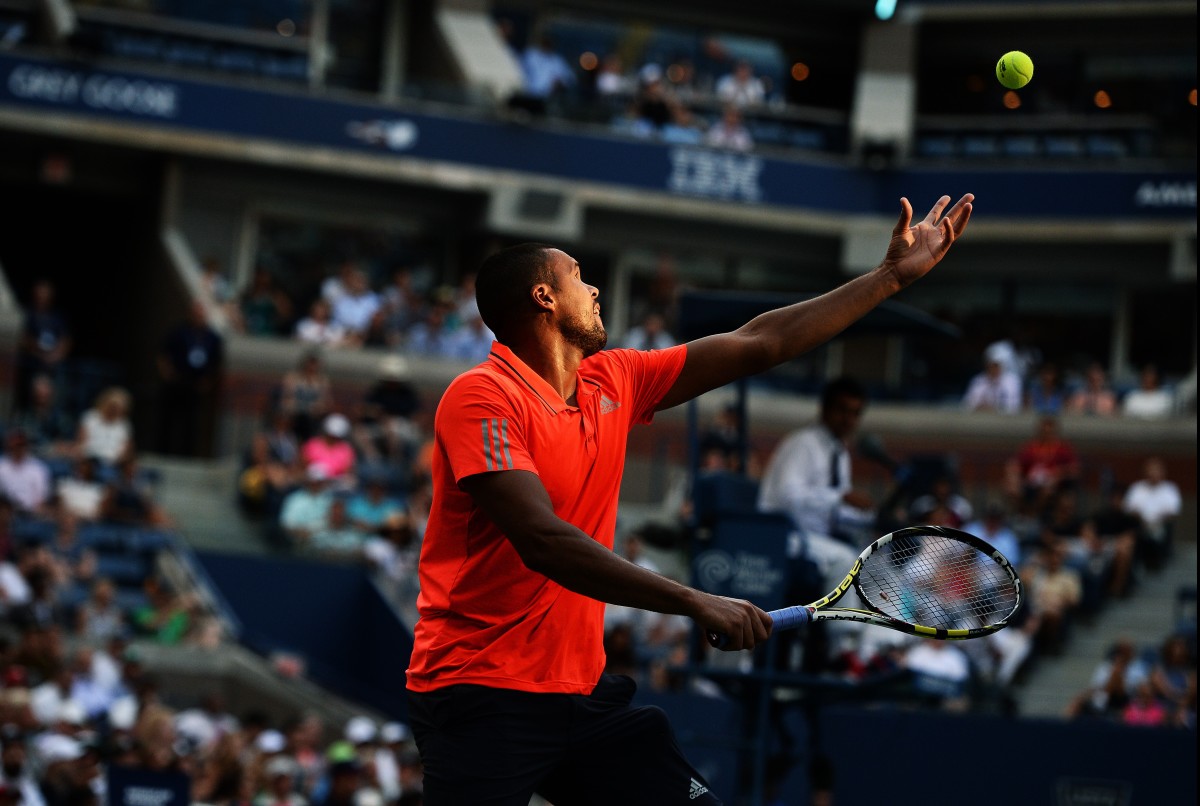
Serena Williams
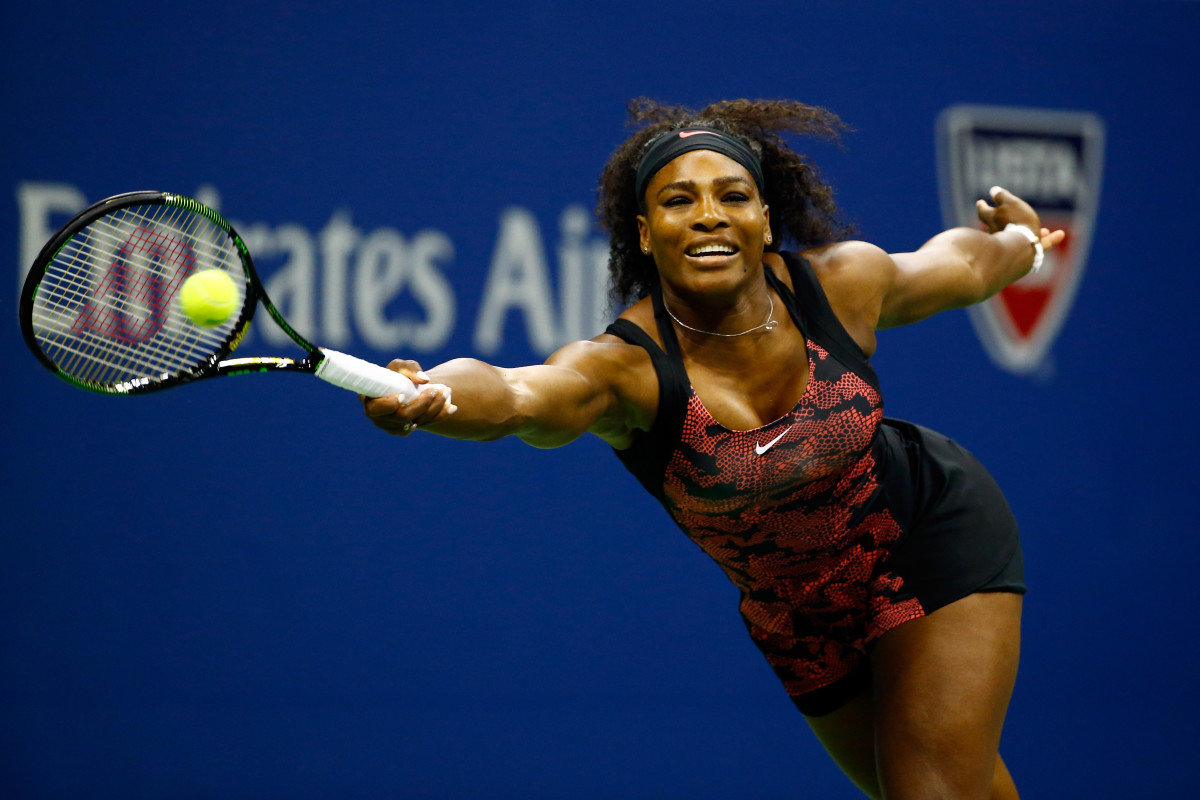
Venus and Serena Williams
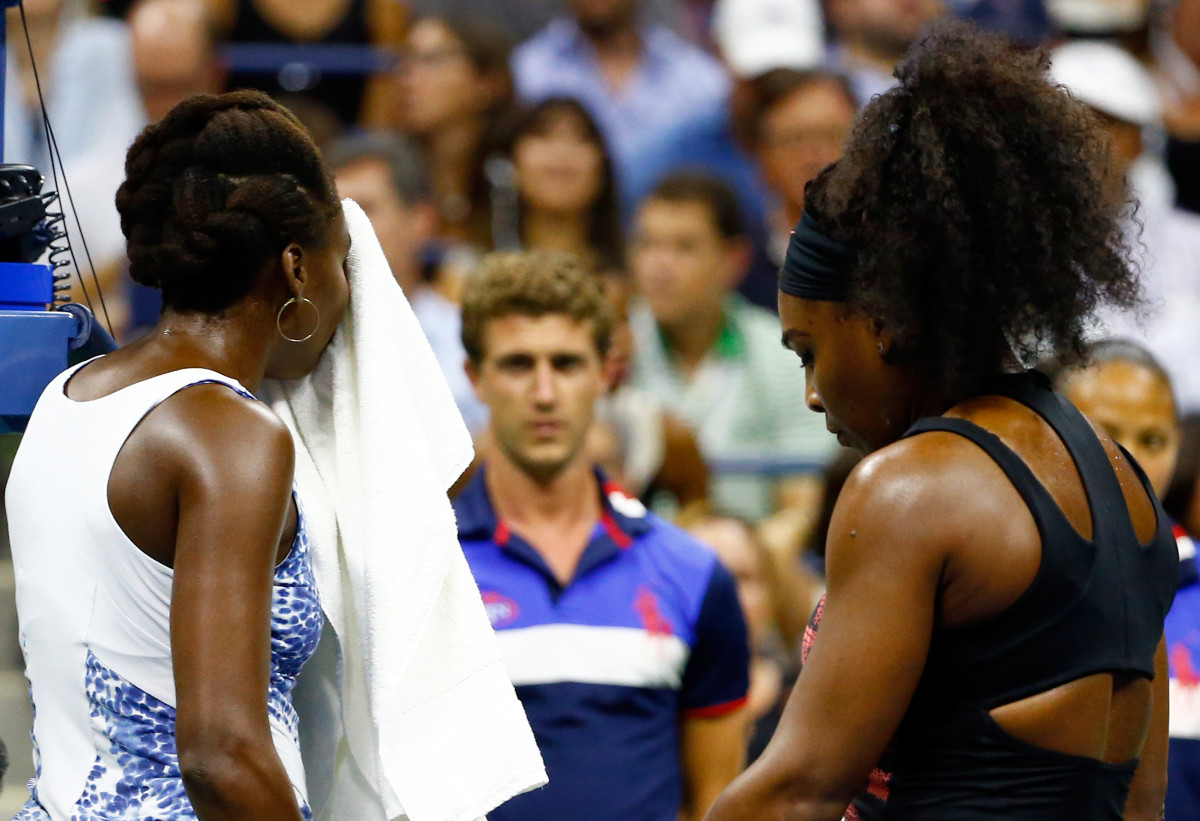
Venus Williams
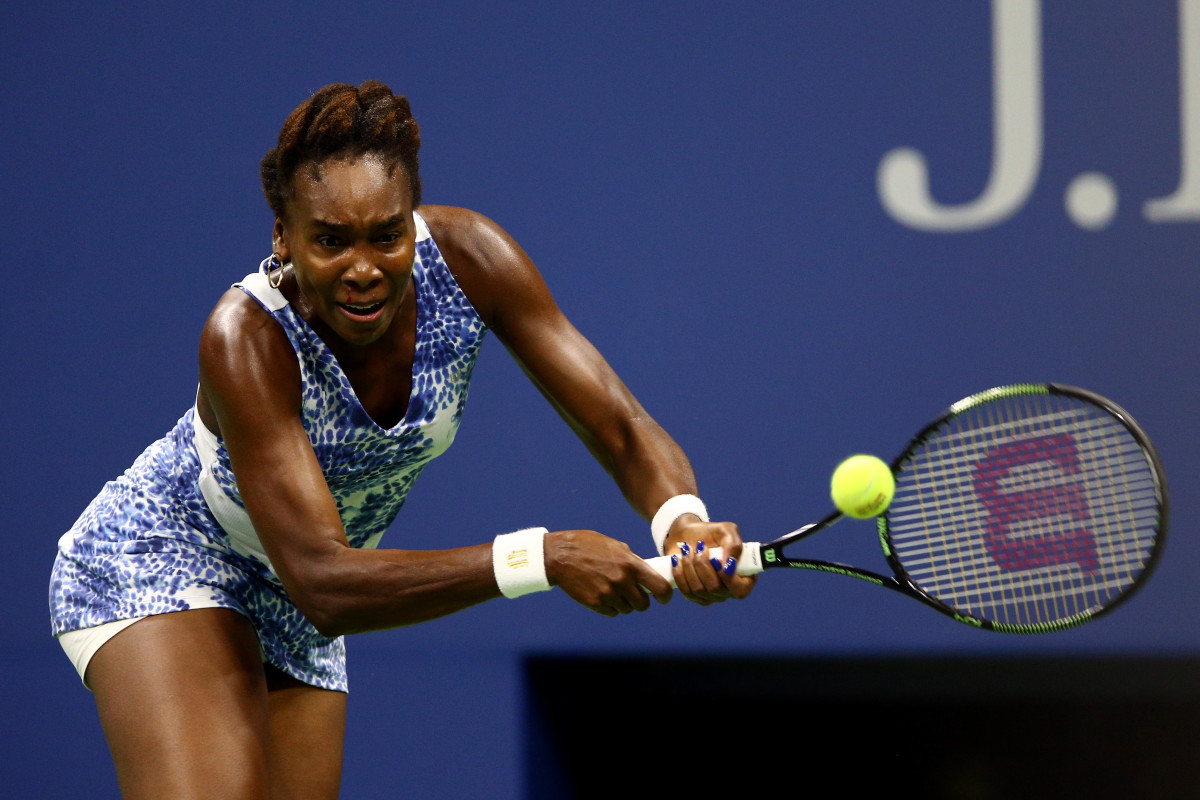
Serena Williams
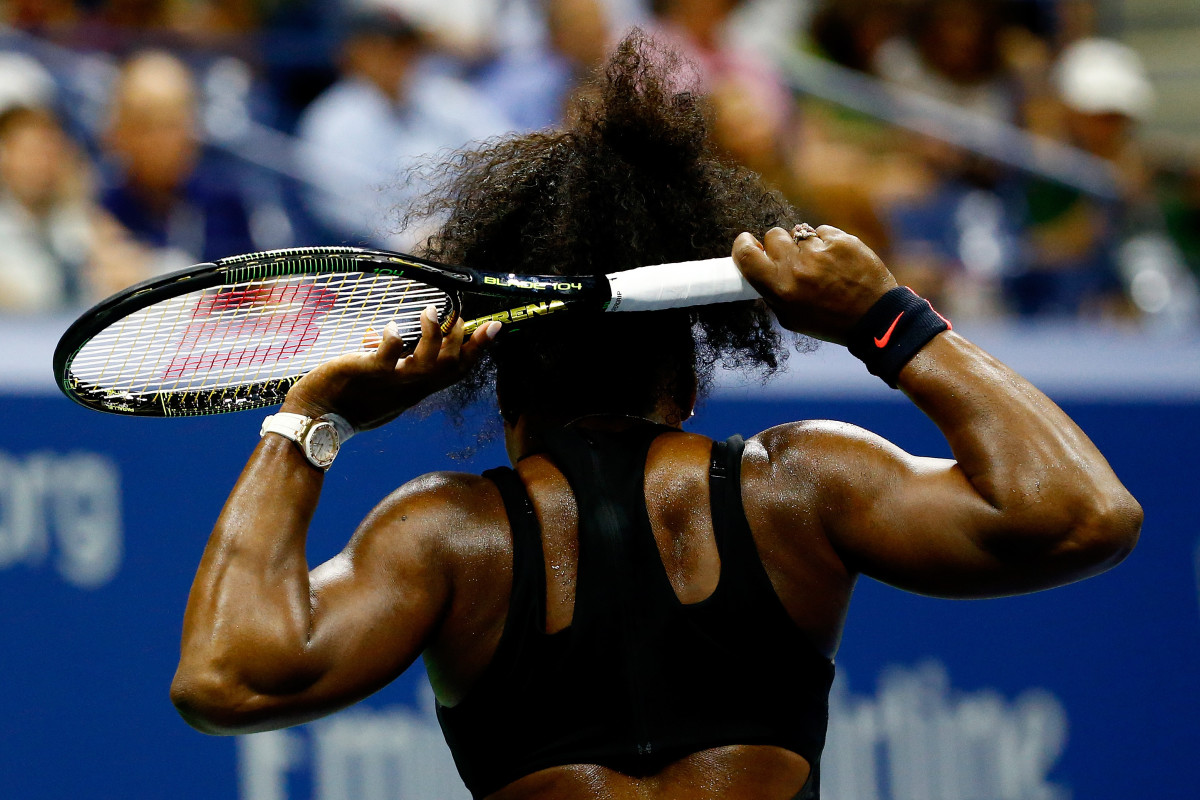
Venus Williams
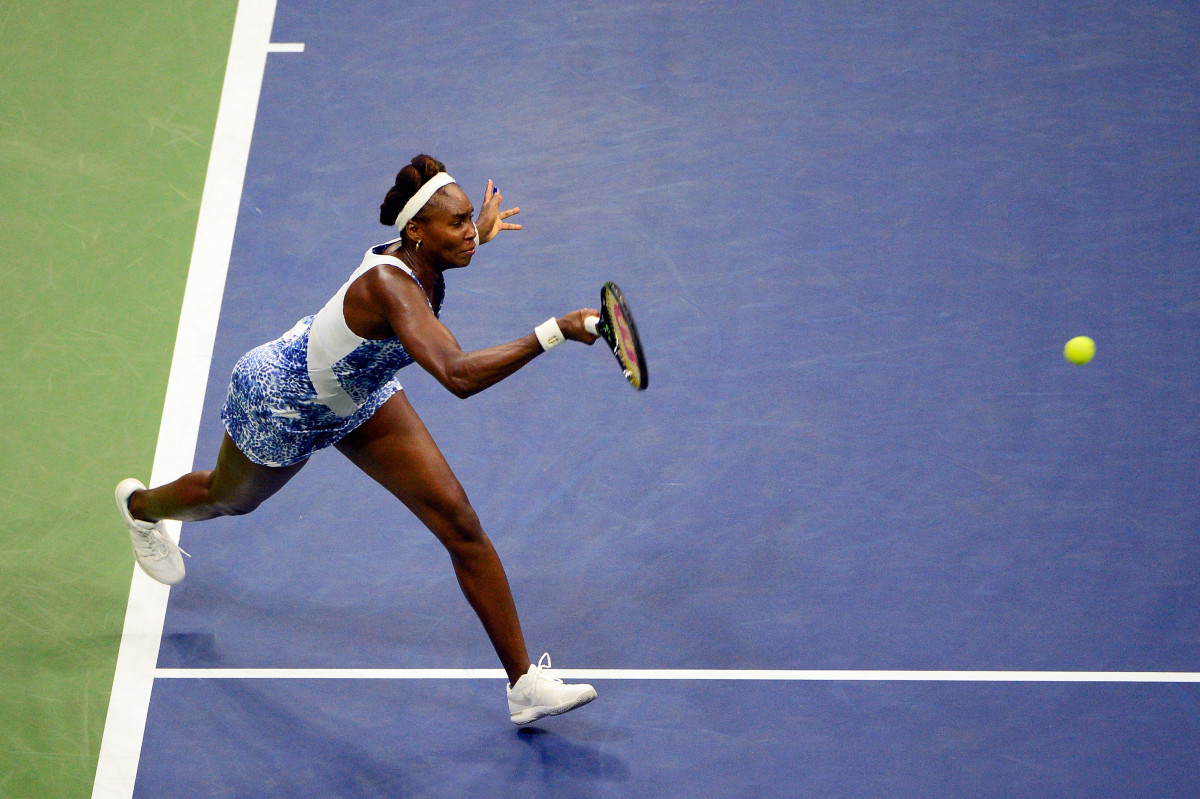
Serena Williams
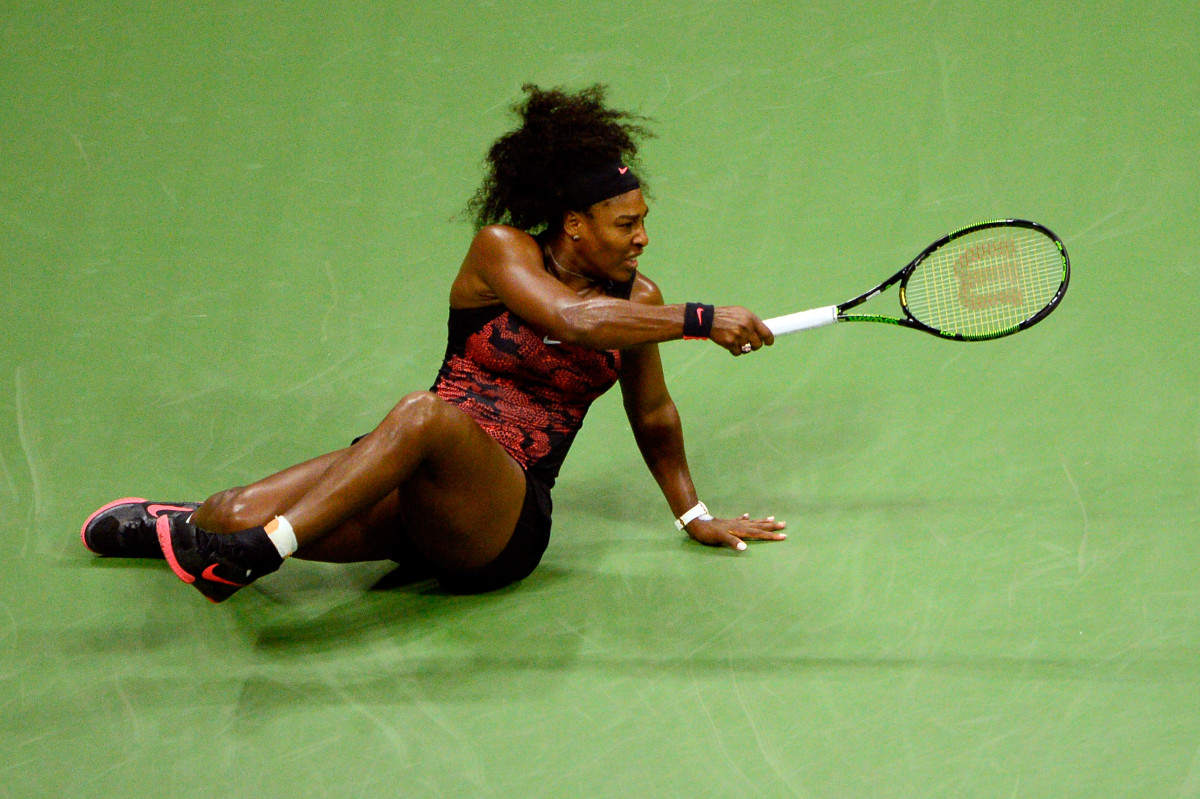
Serena and Venus Williams
